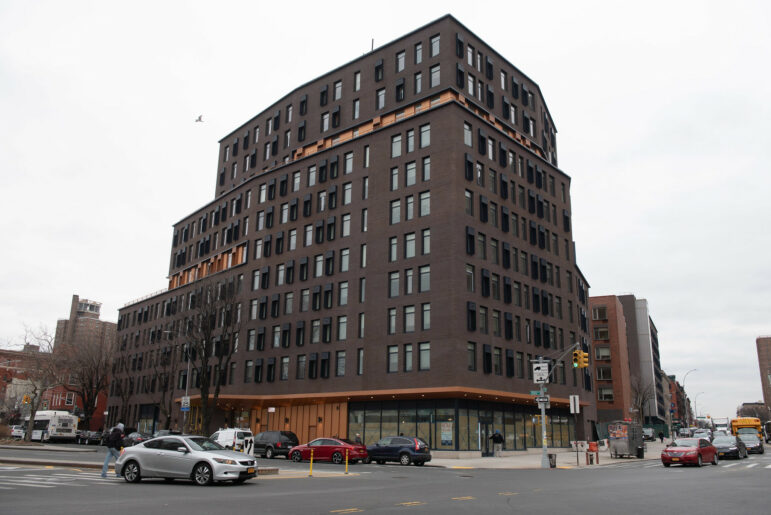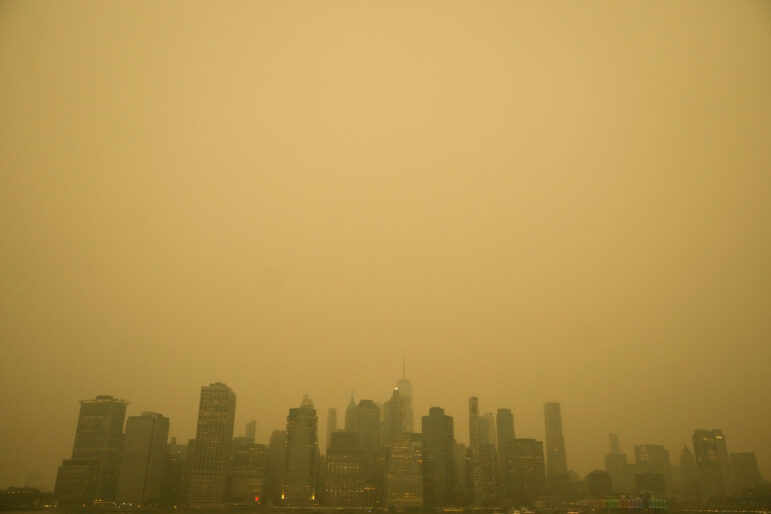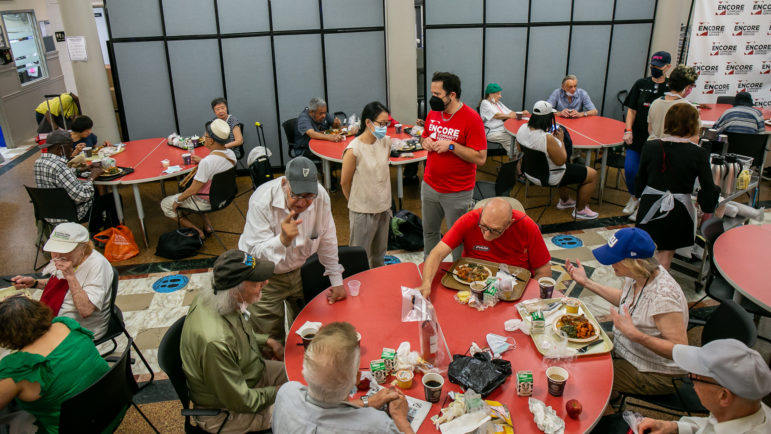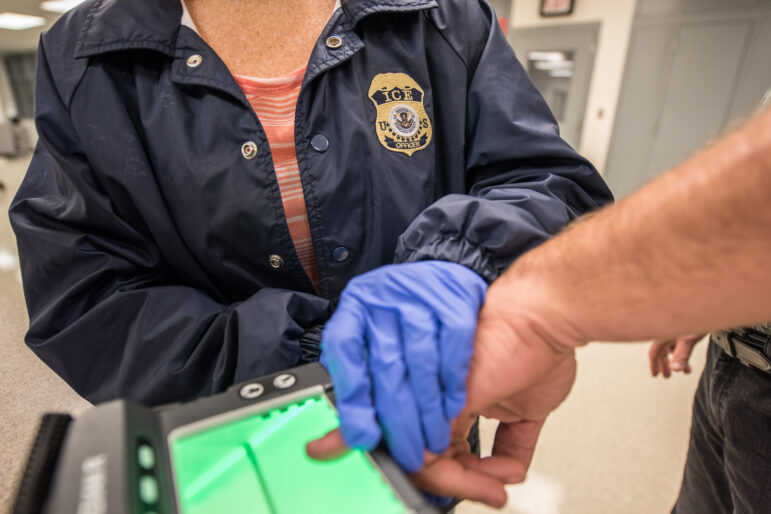‘The parallels between Trump and Giuliani’s personalities are stark, the marriage of two men impervious to self-control, shame and disgrace. No amount of revisionism, contortion or myopic soul-searching by Frydman removes the stain.’
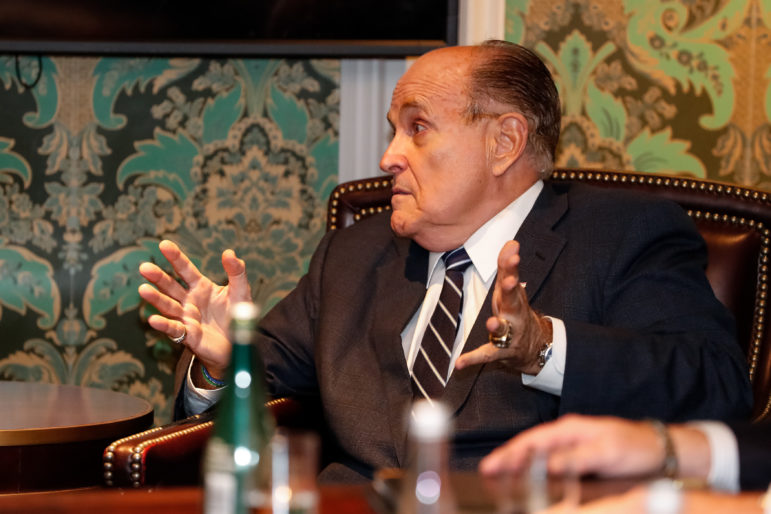
Press secretaries are artful advisors in dealing with the media. They are wordsmiths who help their bosses maintain favorable public images and avoid bad coverage. In this aspect of their jobs, these agents are often quite inventive.
Ken Frydman was Rudolph Giuliani’s press person in 1993, the year he squeaked out a win in his second race against the late David Dinkins. He left the post after that campaign and currently identifies himself as the CEO of a “strategic communications firm.”
Dinkins’ departure and dignity compared to Giuliani’s grim daily disintegration moved me to respond to Ken’s recent hand wringing over the part he played in Rudy’s success and his disillusionment all these years later. It’s a too-late, half-stepping apology by a professional apologist.
In three opinion pieces written over the last three years, Frydman dips into the trick bag that all flacks possess to portray what happened to our ex-mayor. It shifts from an encomium to what he once was to a rueful synopsis of what he became.
The commentaries go from admiration to semi-remorseful rebuke to full bore denunciation written in a confessional tone. As much as Ken tries to airbrush the picture, his support of Giuliani’s dirty election victory is an “Out, damn spot!” moment he can’t erase.
I had rare access to the Rudolph W. Giuliani Vulnerability Study, a thick catalog of news clips and documents. It was prepared at his request in April 1993 to fend off attacks he might face against Dinkins. The study amassed 20 years’ worth of negative information about his personal and professional life. Intended to arm him, its contents so angered Rudy that he ordered all copies destroyed.
It’s hard to imagine that an insider, whose press work for the mayor began and ended in 1993, did not see this study. Even so, every flaw it cited was on the public record—troublesome truths that Frydman skirted back then. And even now, his updated accounts exclude instances of the mayor’s excesses that have been witnessed by so many over all the ensuing years.
 CityViews are readers’ opinions, not those of City Limits. Add your voice today!
CityViews are readers’ opinions, not those of City Limits. Add your voice today!
Ken’s 2018 Daily News Op-Ed, “Why I still respect Rudolph Giuliani,” says Rudy is the same man he has known—always playing “hardball,” a trope repeated 10 times in this tribute. It excuses the crude way a stoked Rudy attacked Dinkins and screamed “bulls–t” at a policy rally outside of City Hall in 1992. The unflinching study, however, viewed Rudy through the lens of his critics, characterizing him as ruthless and overzealous and saw the event as a “Cop Riot” for which Giuliani could be upbraided for “inflammatory profanity-laced screeching” that “turned an overtly racist police rally into a dangerous police riot.” Notably, rabid Rudy never admonished the cops for using ugly slurs to attack Mayor Dinkins.
The 2018 piece uses the unrelenting hardball mentality to justify Rudy’s defense of President Donald Trump—whose stream of vulgarities makes “bulls–t” a choir boy’s expletive. Frydman proudly admits he also plays hardball for a living. “It’s what you do for your clients.”
It makes me wonder if this hardball defense could soon replace not guilty on the grounds of insanity. “Your Honor, I admit the defendant willingly urged people not to wear masks, causing multitudes to catch the virus, leading directly to the deaths of thousands—but he was playing hardball.” How would that plea fly?
A year later, acting as one of his own clients, the same press secretary crafts a conversion story that asks New York Times’ readers, “What Happened to Rudy Giuliani?” Rudy is now “Trump’s bumbling personal lawyer and henchman,” a former prosecutor arguing for the indefensible. Frydman declares, “He wasn’t always like this.” But what is 45’s attack dog Rudy doing now if not continuing to rifle beanballs and crave attention?
Ken’s answer to the “what changed” question is that Rudy was once a regular guy. But his fancy lifestyle, lies, Ukraine “misadventure,” and actions in relation to the president began to offend him. The Times’ Op-Ed raises issues about the mayor’s cashing in on 9/11, selling speeches and taking money from any source.
But nothing happened to Giuliani. His behavior and outlook did not veer. Frydman is taken aback by Rudy seeking to capitalize on fame. Yet, the PR man fails to recall when he sold himself exorbitantly to private law firms investing in him after his Southern District of New York glory days ended in 1989, and they anticipated his first run for mayor. Their likely quid for a possible quo.
And, by omission, Frydman appears to remain undisturbed by the chapters in Rudy’s career marked in neon by egotism and cruelty. To wit: His inhumane treatment of Haitians seeking refuge in Florida in the 1980s, during the years he was the Associate Attorney General in the Department of Justice under President Reagan; the credit he took for crime reduction in New York City that began under Dinkins and was largely the result of William Bratton’s strategies, the police commissioner whom he fired for leadership that received accolades.
Still, there’s no denying Rudy’s first-term performance won him strong support for crime reduction and fiscal bounce back. His Republican-Liberal run for re-election against Democrat Ruth Messinger was virtually assured, endorsed by the city’s four daily newspapers (including Newsday). He got 58 percent of the vote in 1997 from those comfortable enough with his management style.
In his acceptance speech, Giuliani acknowledged and vowed to correct the image of divisiveness he earned during his first term. “Whether you voted for me or against me, whether you voted or didn’t vote, I’m your Mayor, this is your administration. We have to do a better job of serving all of you. We have to reach out to all of you. And if we haven’t, I apologize.” But the tough-guy swagger he sanctioned in his NYPD Street Crimes Unit too often vented itself in rage against minorities. Evidently, memories of Louima, Diallo and Dorismond did not fit the spin doctor’s narrative.
And after 9/11, Hizzoner thought it would be wise to keep himself in office beyond his second term. The indispensable crisis manager. In fairness, the offer was made to cover an interim period that would presumably yield to the election of his successor.
Ken’s third installment, featured in the Sunday Daily News on Nov. 23, was titled “Rudy’s bitter end: A former friend and staffer tracks the mayor’s sad decline.” Frydman tells how Rudy has become an embarrassment. He resorts to ad hominem attacks—twice pointing out that, like Trump, thrice-married Rudy was a “bad father, worse husband” and a draft dodger to boot.
Somehow, Trump has pushed Giuliani’s hardball tendencies to the depths of condemnation for “baseless” allegations of election fraud; “gumming up” the transition to president-elect Joe Biden; impeding virus vaccine distribution plans; and “subjecting the country to further chaos.” To suddenly woke Ken, Rudy has become a man weak in character, a disappointment. Methinks, Frydman protests too much.
The Vulnerability Study shows that Rudy hasn’t changed. His character and pattern of misconduct prior to 1993 endure. The study gets to Giuliani’s core—his vehement and implacable nature. The paradox is that this man who once went to extremes for law and order is now the attorney for lawlessness and disorder.
The parallels between Trump and Giuliani’s personalities are stark, the marriage of two men impervious to self-control, shame and disgrace. No amount of revisionism, contortion or myopic soul-searching by Frydman removes the stain.
(Dear Reader, A homework question: Do you think it will take Kellyanne and Kayleigh 25 years to adjust their views of the nation’s golden hardballer?)
Fred Smith assisted “F–king Wayne Barrett” in analyzing NYC crime stats for his investigative biography, RUDY!
Ken Frydman responds:
I don’t know Fred Smith and he doesn’t know me. But I’m glad to be important enough for him to opine about. Unfortunately for him and his readers, Smith’s opinion piece is misinformed and biased. Wayne Barrett, Smith’s late mentor, hated Rudy. So it makes sense that Smith, Barrett’s onetime intern, would criticize Giuliani through me. As I’ve written, Trump’s Rudy is not Mayor Rudy. Even Wayne Barrett would acknowledge that. Too bad Fred Smith can’t.



